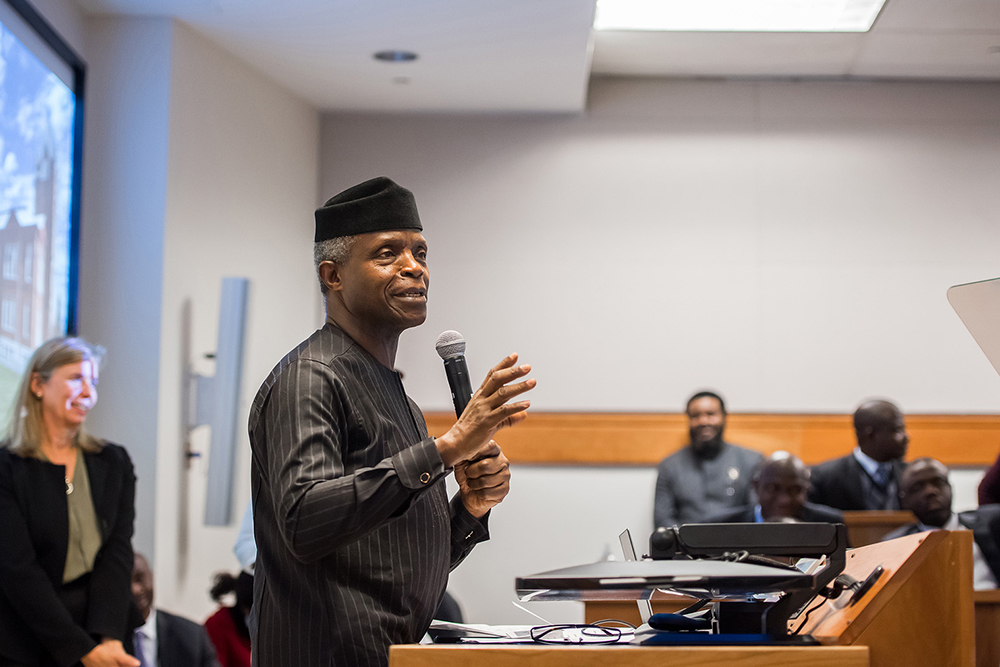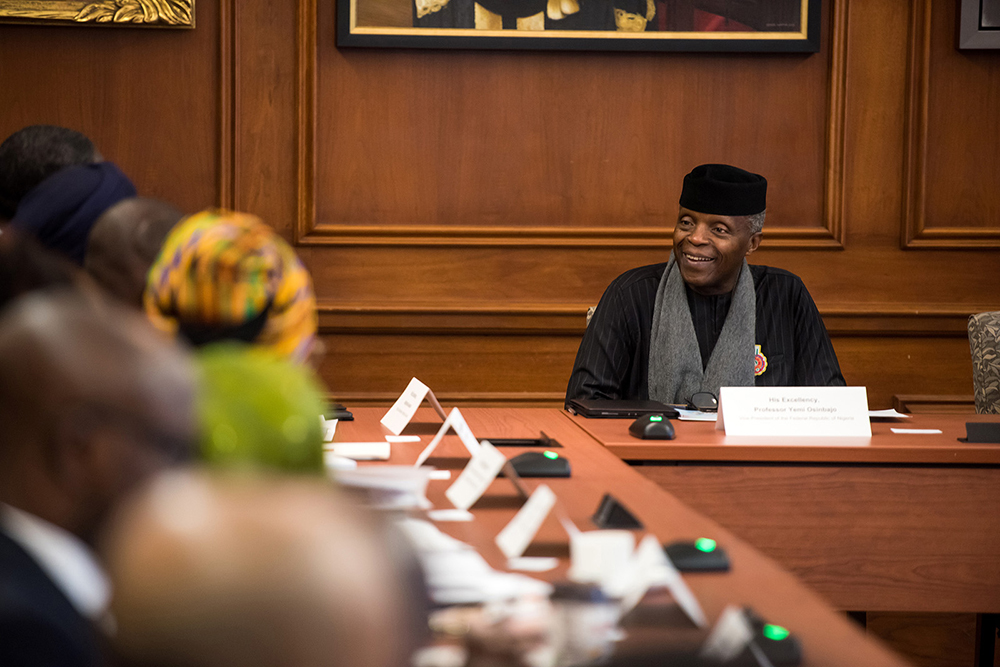
Nigeria’s Vice-President visited Queen’s this week, where he met with senior university leaders and delivered a public lecture on environmental sustainability and climate justice in Africa.
His Excellency, Professor Yemi Osinbajo, addressed a live audience of 80 campus community members and over 500 virtual attendees during his talk, highlighting the need for strategies that not only advance international decarbonization strategies but that also help alleviate poverty.
“We need to recognize that climate change is an inherently social issue with important social justice implications,” says Vice-President Osinbajo, who fielded questions from attendees following his remarks. “In particular, the poor and the vulnerable largely in developing countries will be the first to suffer and of course are already suffering. So then we need to reframe our climate action paradigm from merely a technical effort to cut emissions to an approach that places people and addressing social inequality at the centre of our efforts.”

The visit began with a meeting between the Nigerian delegation and senior figures from Queen’s, St. Lawrence College, KEDCO and UNESCO. Together they discussed shared goals of advancing the United Nations Sustainable Development Goals (SDGs) and how collaborations and partnerships between the two could enhance these aims. Vice-Principal (Research) Nancy Ross and Dean of the Faculty of Health Sciences Jane Philpott each outlined areas of collaboration, including low carbon research, global health, and global oncology (SDG 3, 7, 10, 13).
Associate Dean (Teacher Education) of the Faculty of Education Peter Chin, and Smith School of Business alumnus Hakeem Subair, each spoke to the Faculty of Education’s collaboration with 1 Million Teachers, which pertains to SDGs 4 and 5 and aims to improve education and gender equality.
Meanwhile, Director of the Centre for Social Impact, Jean-Baptiste Litrico, spoke to the Advanced Leadership for Social Impact Fellowship. The program, which was launched earlier this year, counts Dr. Mariam Masha, Special Assistant to the President on Humanitarian Interventions and part of the visiting delegation, as part of its inaugural cohort.
“We are honoured to have Vice-President Osinbajo and the Nigerian delegation with us here today,” says Sandra den Otter, Vice-Provost (Global Engagement), whose office hosted the Vice-President’s visit. “We had some excellent discussions about ways we can pursue bidirectional collaborations that benefit our communities and generate truly global impact. We’re looking forward to continuing our partnerships to support girls’ education in the region, as well as advancing new areas of potential collaboration around global health, low carbon research initiatives, and other priorities.”

Among the other delegates who accompanied the Vice-President during his visit, was Nigeria’s High Commissioner to Canada, His Excellency, Adeyinka Asekun, as well as Abby Asekun (Communications Director, Nigeria-Canada Investment Group), Hakeem Subair, and others—many of whom came to campus in June 2022 to attend an on-campus art exhibition called Muna Taro. That event, which underscored the need to improve and support quality learning for children and youth—especially girls—in Nigeria and across Africa, was a joint production by three Nigerian organizations, including 1 Million Teachers.
In the new year, the Queen’s Faculty of Education will be collaborating with UNESCO for a project on innovative pedagogy within a global competencies framework. The Office of the Vice-Provost (Global Engagement) is also planning a panel event exploring further research and community engagement in West Africa.